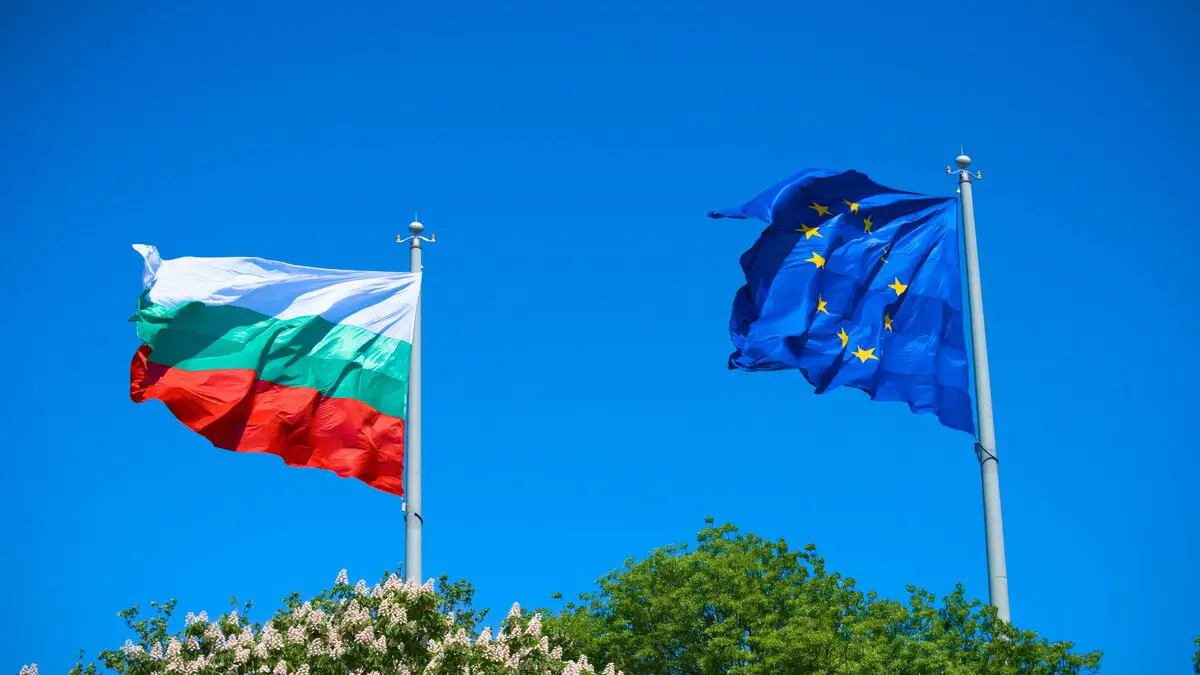5 Ways to Stand Out and Boost Black Friday Sales
Black Friday is the day after Thanksgiving, falling on Friday 29th November in 2024. It’s known for being a perfect time for snagging a bargain, opening the...

Do you want to start a business in Bulgaria? If you’re a UK entrepreneur considering starting a business in Bulgaria you’ve got some great opportunities across diverse sectors, with an increasingly digitalised and outward looking company registration process. Starting a business in Bulgaria as a foreigner is easier if you can speak some Bulgarian - but there’s help on hand from agencies like Invest in Bulgaria1. This guide will walk you through the basics to get you started on your quest.
As a bonus we will also introduce the Wise Business multi-currency account which lets you hold and exchange 40+ currencies with mid-market exchange rates, and low fees2. More on Wise and how a Wise Business account can help your company grow, later.
Discover more about Wise Business 💡
Bulgaria has a steady and growing economy according to EU forecasts3, set to grow in excess of 2% in 2025. It’s also strategically located for Southeast Europe with easy access to mainland Europe and other large regional markets, totalling 1.3 billion customers according to Invest in Bulgaria2.
In terms of interesting sectors for a business in Bulgaria, it’s notable that 9 out of 10 cars made in Europe contain one or more Bulgarian components, making automotive industries especially important, alongside other sectors like manufacturing, IT, and health and life sciences.
Doing business in Bulgaria is a lot easier if you can speak some Bulgarian - but there are lots of translators and support agencies and services available to help you if you’re yet to tackle the language.
So, how to start a business in Bulgaria? The first job on your list is likely to be picking the right entity type to suit your preferences and the type of work you’re expecting to do. Bulgarian business entities aren’t quite the same as the business types you’ll find in the UK, so investing some time in deciding which to pick is important.
Here’s a look at the most popular types of business entities one can choose to start a business in Bulgaria4:
It’s also possible to register as a sole proprietor in Bulgaria but this cannot be done from the UK. Let’s work through the most common business types in more detail, one by one.
You can open a Limited liability company, which may be shortened to Ltd. or SMLtd. as a foreigner in Bulgaria. Initial investment can be as little as 2 BGN, with each partner putting up a single lev as cash asset - non-cash assets can also be considered but are subject to assessment. Shares are not subject to trading. You can register from under 100 BGN in state fees if you do so online, but bear in mind that oher costs such as translation and notarisation fees may apply.
To open a JSC you’ll need 2 or more people and 50,000 BGN or more in share capital. If your business will be in certain sectors such as banking and finance, you may need more capital. The shareholders are liable for the business only up to the total amount of their share capital. State fees for registering a JSC can be as little as 200 lev if you get set up online.
There’s no initial capital needed for a limited partnership agreement. The details of the agreement, made between 2 or more individuals, must be set out in writing, with at least one partner assuming general responsibility for the company including unlimited liability. Other partners have their liability limited under this agreement based on the amount paid into the business in the first place.
With a general partnership there’s no initial capital requirement but all partners are liable jointly and fully for the business. That means there’s no limits to the liability for any partner involved in this model. The state fees for registering a general partnership are under 100 lev as long as you register online.
A partnership limited by shares must include at least 3 partners, of which some can be limited liability partners and some take general liability for the business - a little like in a JSC. Unlimited liability partners act in an advisory capacity, leaving the limited liability partners to vote on business matters.
Opening a business in Bulgaria is easiest if you have a local agent. There are many online services which can help with this - and if you don’t have a working knowledge of Bulgarian language this is certainly the easiest choice. Make sure you know what you’re paying for when you choose an agent so there are no surprises.
As a broad outline, the steps needed to start a business in Bulgaria usually include:
Exactly what’s needed can vary according to entity type and the activities of your business - your agent will advise you along the way. Completing registration online makes the process much more straightforward and also reduces the state fees you pay significantly.
Not sure which business account to get to manage your money in lev and pounds? There’s more on how Wise Business can help with that coming up later.
Let’s walk through a few more important questions about starting a business in Bulgaria.
The costs of registering a company in Bulgaria vary depending on the entity type. You’ll need to pay state fees - but remember that there may also be several additional costs such as translation of documents, legal representation and advice.
To give an example of the state fees, here’s what you pay for registering a limited company in Bulgaria:
These fees are reduced if you’re applying electronically, to 55 BGN and 20 BGN respectively.
Bulgaria has a few very important industries including automotive, electronics and manufacturing. If you’re a UK entrepreneur in one of these fields - or in another of Bulgaria’s key sectors - it can be an appealing place thanks to its strategic location for access to the mainland Europe market. The costs of registering a business are low, and agencies like Invest in Bulgaria1 are on hand to help foreigners navigate the business landscape successfully.
Yes. The basic process for registering a business in Bulgaria is the same no matter whether you’re a local or a foreigner. Bear in mind though that all documents provided, and all application details, must be provided in Bulgarian. If documents in their original form are in another language of the EU, you can submit them with a certified translation into Bulgarian instead.
Check out Wise Business for easy ways to hold, receive, send and exchange currencies with the mid-market exchange rate and low fees2.
Wise is a perfect partner for international businesses, with flexible digital account services which use the mid-market exchange rate for currency conversion, with fair and transparent fees that can mean you pay less in costs overall.
Open a Wise Business account online to hold and exchange 40+ currencies, with linked debit and expense cards, multi-user access, batch payments, cloud accounting integrations and more. Use your account to receive payments from customers, to send money to suppliers and to keep an eye on everything from your phone or laptop - easy.
Check out how one business is making the most of Wise Business in this Open Collective case study.
Ready to learn more about how to open a Wise business account in the UK? Here’s a quick overview:
Use this guide to start you off on your journey to opening a business in Bulgaria from the UK. And while you’re here, check out Wise Business as a smart way to manage your money once your company is up and running.
Get started with Wise Business 🚀
Sources used for this article:
Sources last checked Apr 8, 2024
*Please see terms of use and product availability for your region or visit Wise fees and pricing for the most up to date pricing and fee information.
This publication is provided for general information purposes and does not constitute legal, tax or other professional advice from Wise Payments Limited or its subsidiaries and its affiliates, and it is not intended as a substitute for obtaining advice from a financial advisor or any other professional.
We make no representations, warranties or guarantees, whether expressed or implied, that the content in the publication is accurate, complete or up to date.

Black Friday is the day after Thanksgiving, falling on Friday 29th November in 2024. It’s known for being a perfect time for snagging a bargain, opening the...

December kicks off the end of year shopping period, with huge uplifts in on and offline sales as people grab a bargain and get ready for the holiday season....

The term "turnover" is used often in the world of business, but its implications vary significantly depending on the context. At its core, turnover is a...

Wise is a financial technology company focused on global money transfers that offers two different types of accounts: a personal account and a business...

In today's fast-evolving digital landscape, e-commerce is quickly transforming the ways consumers shop and how businesses operate worldwide. DHL’s E-Commerce...

In an increasingly interconnected global economy, small businesses in the United Kingdom (UK) have more opportunities than ever to expand through import and...